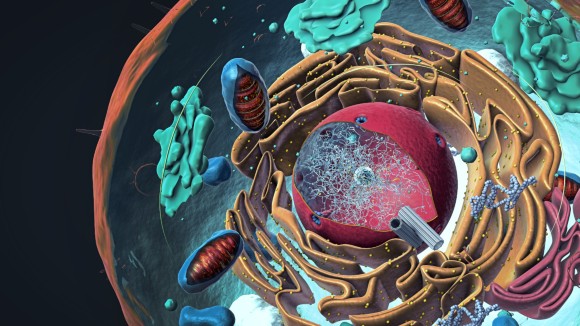 Costin N. Antonescu is a Professor at Toronto Metropolitan University, Canada, who studies receptor signalling, endocytic membrane traffic, and cell metabolism. His research includes study of how signalling by epidermal growth factor receptor and PI3K-Akt are regulated by nanoscale compartmentalization and lipid dynamics. In addition, he studies how signals derived from cell metabolism such as AMPK and mTORC1 control endocytic membrane traffic. Dr Antonescu has been an Editorial Board Member for Scientific Reports since 2019.
Costin N. Antonescu is a Professor at Toronto Metropolitan University, Canada, who studies receptor signalling, endocytic membrane traffic, and cell metabolism. His research includes study of how signalling by epidermal growth factor receptor and PI3K-Akt are regulated by nanoscale compartmentalization and lipid dynamics. In addition, he studies how signals derived from cell metabolism such as AMPK and mTORC1 control endocytic membrane traffic. Dr Antonescu has been an Editorial Board Member for Scientific Reports since 2019.
 Jens Preben Morth is an expert on X-ray crystallography and structural interpretation and design of macromolecules. His primary research focus over several years has been to understand how both integral membrane receptors and soluble protein function using both structural and biophysical methods. Dr, Morth has been an Editorial Board Member for Scientific Reports since 2019.
Jens Preben Morth is an expert on X-ray crystallography and structural interpretation and design of macromolecules. His primary research focus over several years has been to understand how both integral membrane receptors and soluble protein function using both structural and biophysical methods. Dr, Morth has been an Editorial Board Member for Scientific Reports since 2019.
 Armen Petrosyan is currently an Associate Professor in the Department of Biochemistry and Molecular Biology at the University of Nebraska Medical Center.The focus of the laboratory of Dr. Armen Petrosyan are: (a) association of the Golgi disorganisation in advanced prostate cancer (PCa) cells with abnormal glycosylation of integrins, the key players in cancer metastasis; (b) the role of ATF6-mediated ER stress in the development of castration-resistant PCa, and (c) treatment of advanced PCa cells with anti-malarial drug hydroxychloroquine, which can restore compact Golgi and reduces the content of abnormally glycosylated integrins. Professor Armen has been an Editor Board member for Scientific Reports since 2016.
Armen Petrosyan is currently an Associate Professor in the Department of Biochemistry and Molecular Biology at the University of Nebraska Medical Center.The focus of the laboratory of Dr. Armen Petrosyan are: (a) association of the Golgi disorganisation in advanced prostate cancer (PCa) cells with abnormal glycosylation of integrins, the key players in cancer metastasis; (b) the role of ATF6-mediated ER stress in the development of castration-resistant PCa, and (c) treatment of advanced PCa cells with anti-malarial drug hydroxychloroquine, which can restore compact Golgi and reduces the content of abnormally glycosylated integrins. Professor Armen has been an Editor Board member for Scientific Reports since 2016.
 Otilia V. Viera is PI of the group Lysosomes in Chronic Human Pathologies and Assistant Professor with habilitation at Nova Medical School, New University of Lisbon. Her research group focuses on the etiology and on the mechanisms involved in lysosome dysfunction in atherosclerosis, with a goal of the identification of novel mechanisms and drug targets in this age-related pathology. Dr. Viera has been an editorial board member for Scientific Reports since 2019.
Otilia V. Viera is PI of the group Lysosomes in Chronic Human Pathologies and Assistant Professor with habilitation at Nova Medical School, New University of Lisbon. Her research group focuses on the etiology and on the mechanisms involved in lysosome dysfunction in atherosclerosis, with a goal of the identification of novel mechanisms and drug targets in this age-related pathology. Dr. Viera has been an editorial board member for Scientific Reports since 2019.

